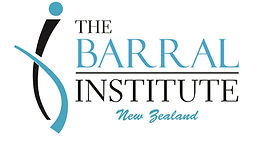
Providing continuing education for manual therapists
Join Rosie, Alison and Damian as they have a talk about the benefits of the barral work - April 2025
How does the liver relate to the shoulder, or the kidneys to the lower back? Do you have patients with chronic neck, shoulder or hip problems? Visceral and Neural Manipulation may help you to answer these questions.
Are you an osteopath, physiotherapist, physician, massage therapist, chiropractor, acupuncturist or other manual therapist, ready to integrate new modalities and skills into your treatment approach?
Barral Institute New Zealand is affiliated to the Barral Institute Inc. based in Florida, USA which has been offering continuing quality education for the Manual therapy field since 1985. Courses are based on the innovative work of French Osteopath, Jean Pierre Barral – Visceral Manipulation, Neural Manipulation and related Manual Therapies. Specifically designed for manual therapists alumni include osteopaths, physiotherapists, physicians, massage therapists, chiropractors and acupuncturists.
so what do we mean?

Visceral Manipulation
Visceral Manipulation (VM) is based on the specific placement of soft manual forces to encourage the normal mobility, tone and motion of the viscera and their connective tissues.
These gentle manipulations can potentially improve the functioning of individual organs, the systems the organs function within, and the structural integrity of the entire body.

Neural Manipulation
Neural Manipulation (NM) examines mechanical relationships between the cranium/spine hard frame to the dura and neural elements and provides assessment and treatment approaches to address restrictions of these areas not commonly focused on with musculoskeletal symptoms.
NM identifies and releases local nerve restrictions while at the same time examines the effect these local fixations have on the rest of the body, and by accessing this relationship, resolves the more comprehensive (global) dysfunctional patterns.

New Manual Articular
Approach
New Manual Articular Approach (NMAA) was developed in clinical practice by world-renowned French Osteopath and Physical Therapist Jean-Pierre Barral. French Osteopath Alain Croibier collaborated with Jean-Pierre Barral to develop NMAA.
The courses are based on clinical techniques personally developed by Jean-Pierre Barral combined with Alain Croibier's scientific information.
TESTIMONIALS
If you want to learn how to really feel with your hands - take this LT1 course. The first time in 12 yrs of practice I have been taught how to feel..
- Physiotherapist 12 years
...Don't delay in taking this LT1 course.... the art of finding the WHAT and assessing how effective you've been!
- Physiotherapist 20+ years
...Very lucky to have Rosie teaching in NZ. Excellent teacher that caters to all learning styles. - Osteopath 15 years
..I could not recommend this course (VM1) enough. It has been an amazing journey of discovery in many different ways.
- Osteopath Graduate
..To keep evolving your practice, these courses are so valuable.
- Osteopath 12 years
...found the teaching a perfect blend of technical info and personal experience, and explained everything so well...

FOUNDER
Jean-Pierre Barral
DO, MRO(F), RPT
Jean-Pierre Barral is a Diplomate of Osteopathy, a Member of the Registre des Ostéopathes de France, and a Physical Therapist. He is the Developer of the manual therapy he calls Visceral Manipulation (VM). Through his clinical work with thousands of patients, he created this modality based on organ-specific fascial mobilization. And through work in a dissection lab, he was able to experiment with VM techniques and see the internal effects of the manipulations.
He served as Chairman of the International College of Osteopathy at St. Etienne, France. He was also on the faculty of Médecine de Paris Nord - Université Paris Nord. While on faculty, he was the Chief of the Visceral Manipulation Department—the first time in the world that a VM therapist was part of a medical faculty.
Based on his later clinical work, Jean-Pierre Barral developed additional modalities—Visceral Vascular Manipulation, Nerve Manipulation, and New Manual Articular Approach—in collaboration with Alain Croibier, D.O.
TIME Magazine, citing his development of Visceral Manipulation, named Jean-Pierre Barral, DO one of the Top Healing Innovators to watch in the new millennium.
Jean-Pierre states, even after more than 40 years of research and working with patients, as well as educating tens of thousands of therapists around the world, "we know so little; only the tissues know." We can think as therapists we know what to do to help a patient, but it is only when we put our hands on the person, that the tissues then show us what is needed.
Barral holds the title of Curriculum Developer for the Barral Institute. Barral took the modalities and developed them into various manual therapy courses, which he has taught since 1985.
Barral has trained and certified a team of International Teachers who also instruct these courses around the world.

KEEP IN TOUCH
If you haven't already, please join the Barral New Zealand database to receive our newsletters and be the first to know about new courses and Early Bird offers
We also should not forget that we have a responsibility toward our patients, which should motivate us to work more and study harder every day. We may be applauded for our successes and forgiven for our various failures, but there is no excuse for letting a serious disorder go by unnoticed during our treatments.
Jean-Pierre Barral, DO, MRO(F), RPT
.jpg)
















.jpg)